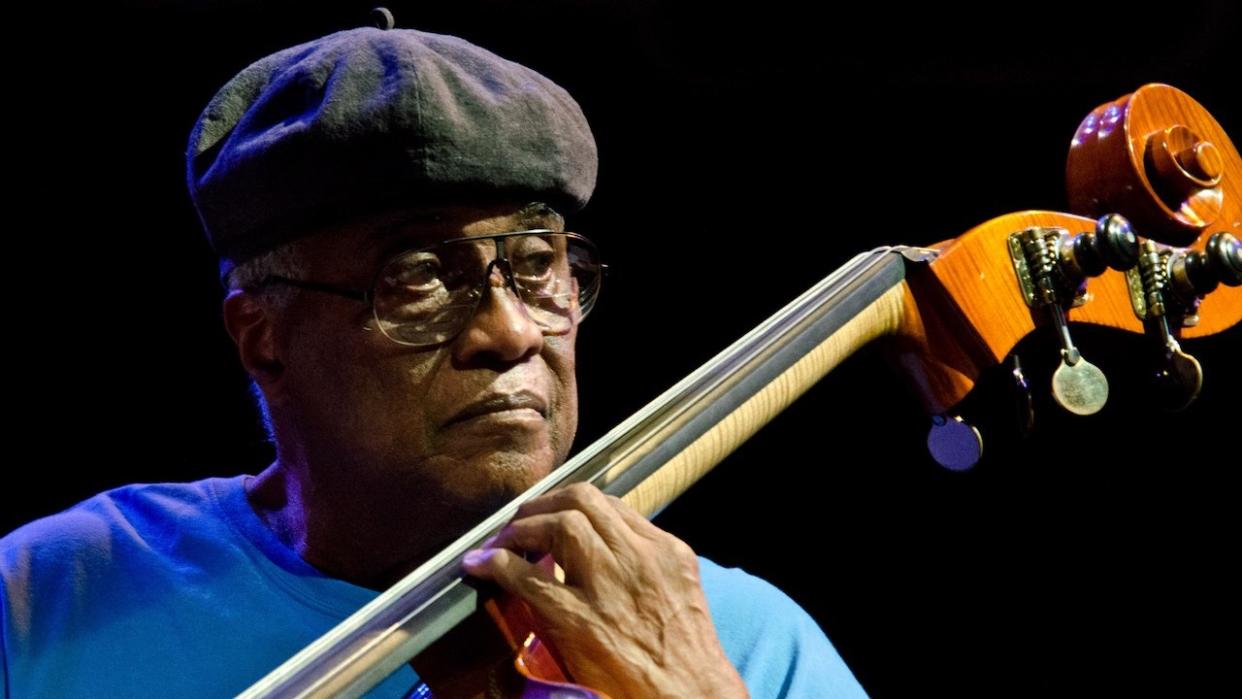Richard Davis, legendary jazz bassist who worked with everyone from Van Morrison to Charles Mingus, dies at 93

- Oops!Something went wrong.Please try again later.
- Oops!Something went wrong.Please try again later.
- Oops!Something went wrong.Please try again later.
- Oops!Something went wrong.Please try again later.
- Oops!Something went wrong.Please try again later.
- Oops!Something went wrong.Please try again later.
- Oops!Something went wrong.Please try again later.
Richard Davis, the bass player with over 3,000 recording credits to his name, has died at the age of 93. “We appreciate all the love and support the community has shown him over the years,” Davis’ daughter Persia Davis shared in a statement.
Having studied double bass in high school under renowned music teacher Walter Dyett, Davis joined rising piano star Ahmad Jamal’s trio in 1952, before moving to New York to perform alongside the likes of Eric Dolphy and Sarah Vaughan.
“You could say I went to the University of Sarah Vaughan,” Davis told Isthmus in 2014. “Once you’ve proven yourself with musicians at that level, other vocalists start to call you, because they figure you must know something.”
Davis went on to become one of New York’s most in-demand bassists, especially among the emerging free jazz movement. “His ‘60s résumé reads like a survey of some of that decade’s most challenging and enduring musical statements,” Rolling Stone wrote when he was placed at number 34 on a list of the 50 Greatest Bassists of All Time. “But that’s just a fraction of his overall output.”
In 1968 Davis was called for a session with Van Morrison for his album Astral Weeks. “Some people are real disillusioned when I tell them about making the record,” Davis told Rolling Stone. “I don’t remember any conversations with him. He pretty much kept to himself. He didn’t make any suggestions about what to play, how to play, how to style what we were doing.”
“For me, it was Richard all the way,” producer Lewis Merenstein once said. “Richard was the soul of the album.” Rolling Stone’s Griel Marcus would later describe Davis’ bass playing on Astral Weeks as “the greatest bass ever heard on a rock album.”
Davis was equally as prolific in the 1970s, with credits on landmark Bruce Springsteen records Greetings from Asbury Park, N.J. and Born to Run, as well as Paul Simon's There Goes Rhymin' Simon.
The bassist also worked alongside Charles Mingus for his 1972 release Let My Children Hear Music, a project that brought together three of jazz’s greatest bassists, Mingus, Davis, and Ron Carter.
In the classical music world Davis worked with the Russian-American composer Igor Stravinsky who once described his virtuosity as ‘god-like’.
In 1977 Davis left NYC for a position at the University of Wisconsin, teaching bass, Jazz history and improvisation, a post that he held for 40 years. Davis’ final recording was Blue Monk, released exclusively in Japan in 2009, a duo collaboration with the late pianist Junior Mance.
Davis was named Best Bassist by Downbeat magazine for seven successive years, from 1967 to 1974, and was named an NEA Jazz Master in 2014, which ensured his place among the pantheon of jazz greats.

